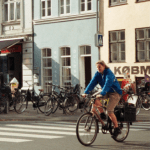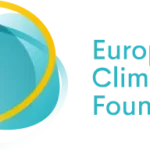The Mobility in Transition Institute
is a not-for-profit association which aims to produce analyses and recommendations based on data, expertise and multi-stakeholder dialogue, to foster transition.
The situation
The genesis of the project
The project was launched in 2021 through an initiative led by Iddri and financed by ECF, in response to a need for consultation and objectivization of the issues involved in a sectoral transition.
After two years of incubation within Iddri, the Mobilité en Transition initiative has become the Institut Mobilités en transition in order to pursue its development.

Decarbonizing road transportation
Our scope is focused on behavioral levers (modal shift, limitation of kilometers traveled), technological levers (electrification, alternative fuels), and industrial ones (car-to-car green steel production, critical materials, competitiveness topics) by integrating sobriety logics (vehicles efficiency).
The aim is to work on the conditions for operational implementation of the transition in the short and medium term, in France and in Europe.
The Institute is a place for producing analyses and recommendations based on expertise. The originality of the method lies in the characterization of the issues at stake through multi-stakeholder consultation, and the development of a unique modeling tool that gathers data on the entire french vehicles fleet, the fiscal and regulatory framework, and the typology of vehicle owners.
The transition is unavoidable and engaged
The European regulatory framework defines an ambitious trajectory and targets for achieving carbon neutrality by 2050. This framework is translated at national and local level by political decisions and technical, industrial or infrastructure objectives, which require a new systemic approach.

Only a socially just and equitable transition is possible
Implementing transition involves economic and social adjustment costs, which must be shared equitably to guarantee acceptability.
Through planning, public policies must anticipate and prevent these risks of blockages by providing a clear narrative around the conditions of support for the most vulnerable.

Board of Directors

Jean-Philippe Hermine

Sarah Chadha

Antoine Trouche

Hannah Gross

Marine Hautsch

Simon Louedin

Anoosheh Babaei

Bertille Rault
The Mobility in Transition Platform
We animate a dialogue platform that brings together industrials, territories, universities, NGOs, Think Tanks, energy companies, financial.
Collaborations
The Institute develops an influencing strategy to improve decision-makers’ understanding in collaboration with other organizations.
Analyses and recommendations
All our publications are based on the objectivization of the issues through data, , reinforced by exchanges within the Platform, and our team of experts.
Founded by
IDDRI
A think tank that facilitates the transition to sustainable development

European Climate Foundation
A philanthropic organization aimed at fostering the development of a carbon neutral society and helping Europe to further increase its international leadership in climate change mitigation.